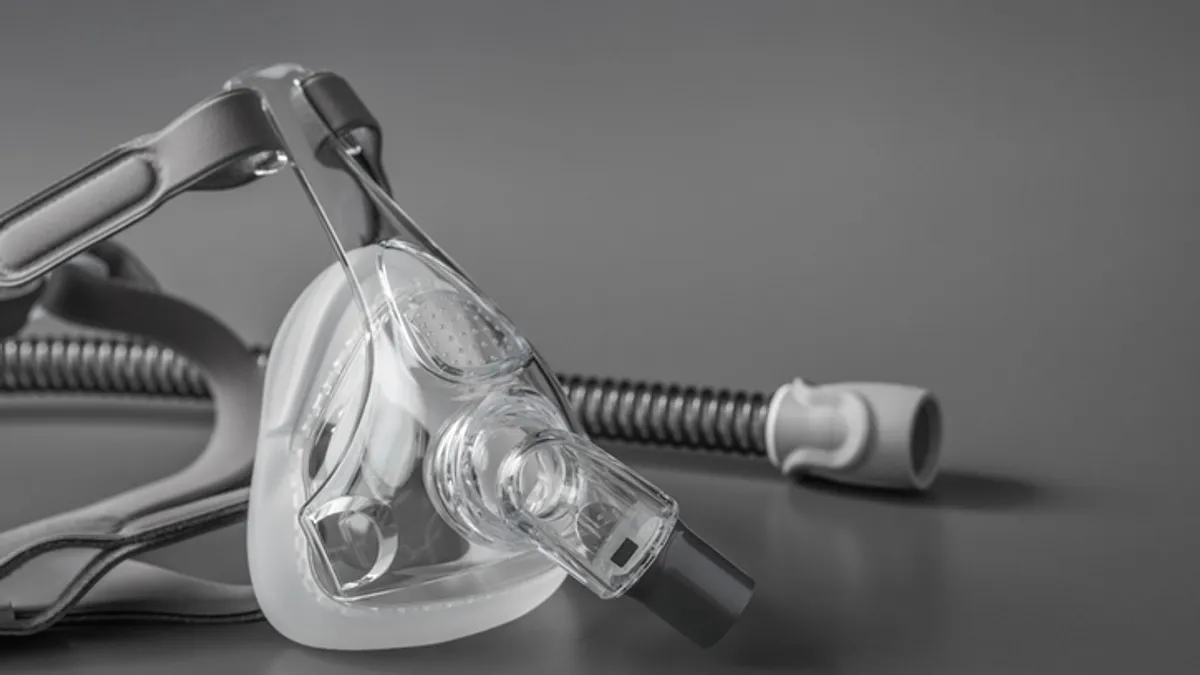Q4 trends: ResMed said revenue in the quarter ending June 30 rose 4% from a year earlier as supply chain pressures eased and markets rebounded from pandemic-related declines. CEO Mick Farrell said on an Aug. 11 earnings call that most of the 140 countries that ResMed operates in “are now above 100% pre-COVID levels of patient flow.” He added that some countries still are below pre-pandemic levels due to COVID-19 surges and stricter restrictions governments have put in place.
Supply chain challenges: A more difficult global supply chain has been one of the biggest hurdles for ResMed as it is scrambling to meet new demand following Philips’ recall of over 5.5 million sleep apnea and ventilator devices. Farrell told investors that the supply chain is still “very much in flux,” even though the environment appears to be improving.
A shortage of semiconductor chips, which are used in a wide array of electronic devices, has been one factor limiting ResMed’s ability to meet the demand for sleep apnea machines. To help improve production, the company altered certain AirSense 10 machines to not have cellular communication chips in them, now calling them card-to-cloud devices. The change does not allow for some remote features and requires data to be manually uploaded via an SD card rather than sent directly from the device. Farrell said that the altered devices were launched midway through the quarter, mostly in June, and they are improving the company’s ability to meet demand.
“During the last month of the quarter — during June — we were able to allocate more products to our customers than in recent months and in recent quarters,” the CEO said.
Semiconductor chip shortage: The redesigned machines have been a workaround for ResMed’s supply chain challenges. Still, Farrell also said that the overall supply of semiconductor chips is improving. A chip shortage has been a problem for the majority of the pandemic and it has impacted companies across the device industry and the global economy.
The CEO stressed that while the supply of chips is improving, the medical device industry should still be prioritized over others as devices are life-sustaining.
Philips recall: ResMed estimates that revenue added from the Philips recall totaled about $60 million to $70 million in the fourth quarter, bringing the total for the full fiscal year to a range of $230 million to $250 million. The company now may have more time to capture market share as Philips announced in July that it is negotiating with the U.S. Department of Justice on a consent decree related to the recall.
William Blair analysts wrote in an Aug. 12 note that the easing supply chain, AirSense 10 cloud-to-card devices and Philips consent decree should allow ResMed to continue to gain permanent market share and grow revenue for sleep apnea and ventilator machines as well as masks used with the devices.
“We expect demand to be greater than supply for at least 12 more months, driven by the recall of one of our competitors, primarily,” Farrell said. “The net result is that every device that we here at ResMed make during these next 12 months, we will sell as it leaves the production line to a warehouse and is shipped to a customer.”










